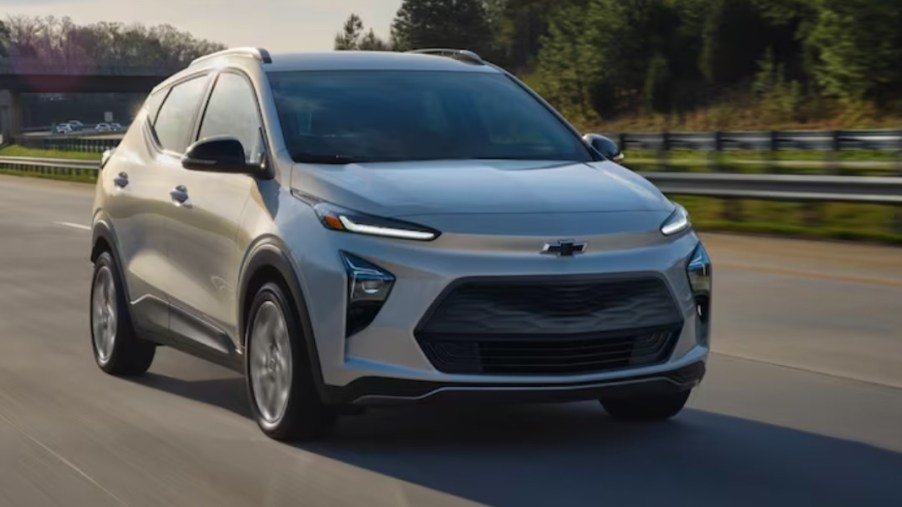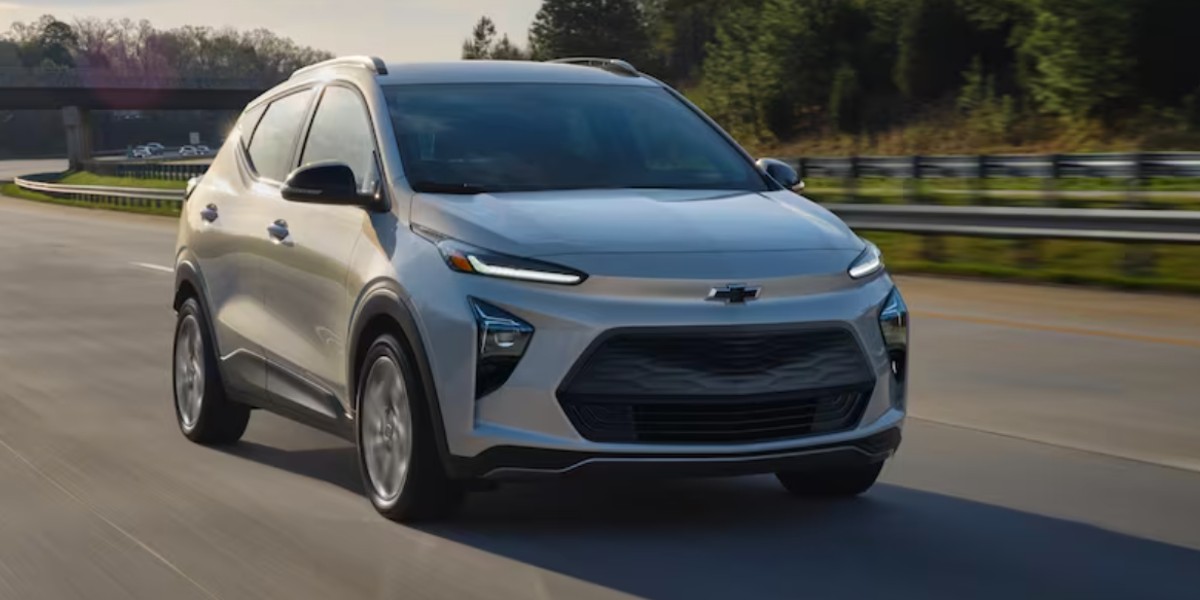
Chevy Couldn’t Have Picked a Weirder Time to Discontinue the Bolt
In a time when electric vehicles are gaining momentum and environmental concerns are at an all-time high, Chevrolet‘s decision to discontinue the Bolt couldn’t have come at a weirder time. But with competitors like Tesla and Ford continuing to innovate and improve their own electric offerings, GM’s decision may prove to be a costly mistake. So, why did Chevy discontinue the Bolt, and what does this mean for the future of electric vehicles? Let’s take a closer look.

The Chevy Bolt’s surprising discontinuation
The Bolt is a small electric car that has been on the market since 2016 and has two variants: the Bolt EV and the Bolt EUV. The Bolt has been one of the most affordable and practical EVs available, with a starting price of $26,500 and a range of over 200 miles. However, CNBC reports that GM has decided to discontinue the Bolt in order to focus on larger and more expensive electric trucks that use its Ultium platform.
The announcement came as a surprise to many, as the Bolt had seen a surge in sales in 2022 and 2023 thanks to price cuts and the addition of the crossover-like EUV model. Chevy sold 19,700 in the first quarter of 2023. The Bolt was also one of the few EVs that qualified for the full $7,500 federal tax credit.
Implications for the future of electric vehicles as GM drops the Bolt
The decision to end Bolt production also raises questions about GM’s commitment to its goal of producing only electric vehicles by 2035. While the company plans to launch other electric models later this year, such as the Chevy Blazer EV and the Chevy Equinox EV, it is unclear how they will compete with the Bolt in terms of price and range. Moreover, by focusing on electric trucks and SUVs, GM may be alienating some customers who prefer smaller and more efficient vehicles.
GM’s announcement to end production of the Bolt EV and EUV is a surprising and controversial one that may have negative implications for the future of electric vehicles in the US. The timing of this announcement is strange given the recent success of the model and the growing demand for affordable and reliable EVs.
GM may be risking losing some of its loyal customers and reputation by abandoning its first mass-market EV and focusing on electric trucks and SUVs instead.
Factors behind GM’s decision to discontinue the Chevy Bolt
According to CNBC, one of the main factors is GM’s shift to a new EV platform called Ultium, which will power its next-generation electric vehicles such as the GMC Hummer EV and the Cadillac Lyriq. The Bolt models were based on an older architecture that was not compatible with Ultium, and GM needed to free up production capacity and resources for its more profitable and advanced EVs.
Another reason is the recall issues that plagued the Bolt models in 2021 and 2022. Chevy had to recall thousands of Bolts due to fire risks associated with their battery packs and seat belts. These recalls damaged the reputation of the brand and cost GM hundreds of millions of dollars.
The end of the Bolt models marks a turning point for Chevy and GM as they transition to a fully electric future. While some customers may be disappointed by the loss of their favorite EVs, others may be excited by the new opportunities and options that GM will offer with its Ultium-based vehicles. Despite the challenges, GM’s move to focus on larger and more expensive electric vehicles could help the company achieve greater profitability in the long term.
However, it remains to be seen whether GM’s gamble will pay off and whether the company will remain competitive in the rapidly evolving EV market.


